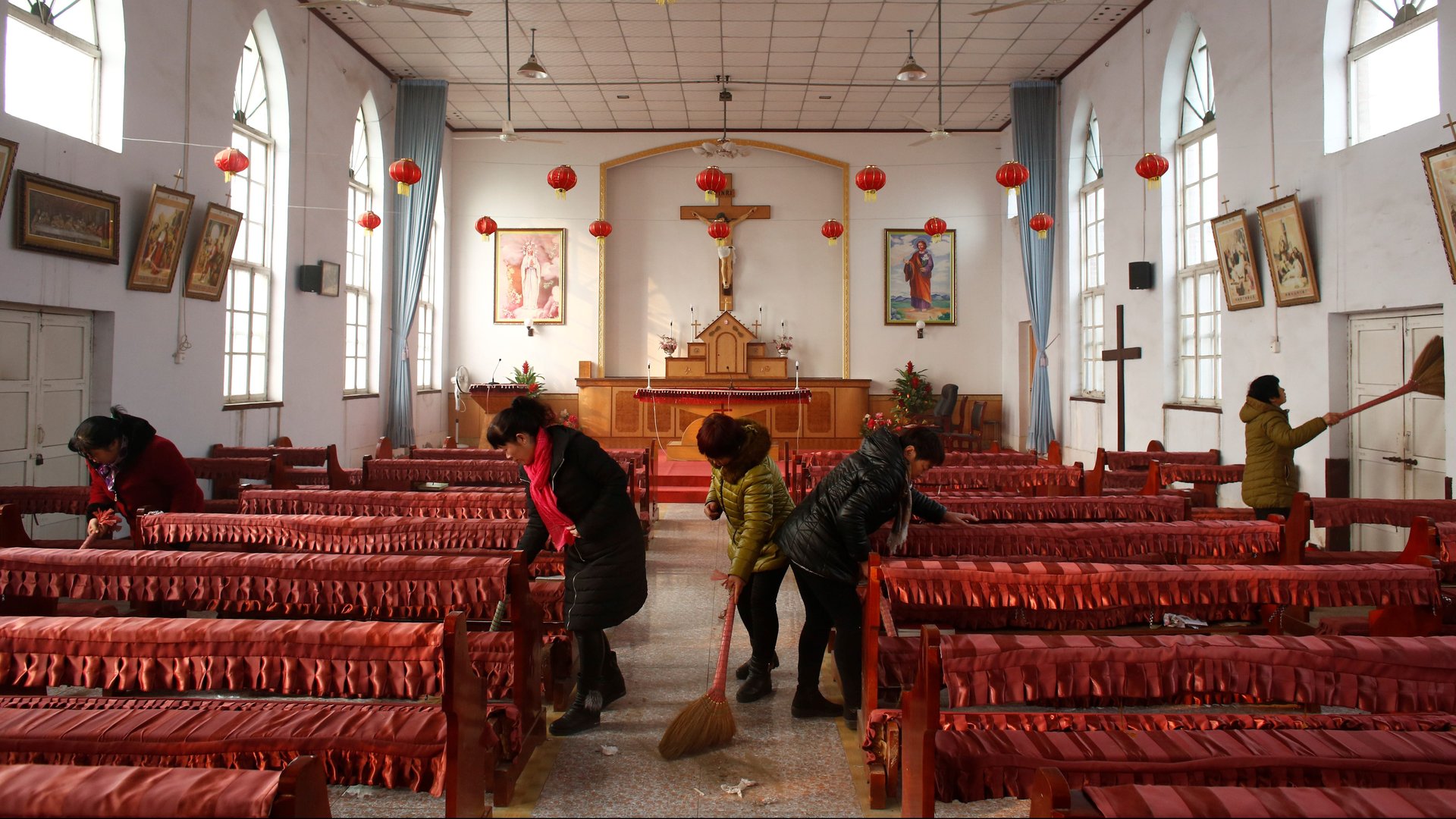What you need to know about the Vatican’s monumental U-turn on China
The Vatican and Beijing might be on the cusp of a major breakthrough in relations after nearly seven decades, with Reuters reporting that the Holy See has approved seven bishops, appointed by China but previously not recognized by the Vatican.


The Vatican and Beijing might be on the cusp of a major breakthrough in relations after nearly seven decades, with Reuters reporting that the Holy See has approved seven bishops, appointed by China but previously not recognized by the Vatican.
The question of who gets to nominate bishops has been one of the many thorns that have been delaying full diplomatic ties between the two countries.
The People’s Republic of China, led by the Communist Party, is formally atheist—even if recognizes five religious faiths, Christianity and Catholicism among them. However, the Catholic Church in China is run by the state, in the form of the Catholic Patriotic Association, which does not recognize the Pope as its supreme authority, but instead, the atheist Communist Party itself.
In parallel, there exists in China an “underground Church” that does not recognize the Catholic Patriotic Association, but only the Vatican’s authority. Its adherents often worship in makeshift churches like the one shown above. Two bishops from the underground Church, ordained by the Vatican but not approved by Beijing, have reportedly been asked to step down in order to make space for those from the official Chinese church—including one, Huang Bingzhang, who had previously been excommunicated.
In 1951, shortly after the Chinese Communist Party took power in the country, the Catholic mission in China was closed down, and the Nunciature (the Vatican’s equivalent of an embassy) was moved to Taipei, in Taiwan, ruled at the time by the Nationalist Party, or Kuomintang.
The developments are still not finalized, but in an interview, the Vatican’s Secretary of State, Cardinal Pietro Parolin, confirmed that talks are taking place, and that the Vatican is willing to compromise on some issues.
Hong Kong’s Cardinal Joseph Zen, who headed the Hong Kong diocese as bishop and then cardinal from 1996 until his retirement in 2009, and is known for his support for the pro-democracy (and anti-Beijing) movement in Hong Kong, is staunchly opposed to what he has called a bad deal. Zen says the problem is the freedom of China’s Catholics.
Zen made a sudden trip to the Vatican earlier this month in order to directly pass on a plea to the Pope over the situation of the underground bishops. In an open letter this week, he expressed his surprise at the latest moves by the Vatican, and even said the Holy See is “selling out the Catholic Church in China.” For that, he was subsequently rebuked by Greg Burke, the press office director of the Vatican.
The other thorn which has so far been left unaddressed is what to do about the existing Nunciature in Taiwan: Beijing does not allow anybody who wants full diplomatic relations with China to also recognize Taiwan—which would mean leaving the Taiwanese flock behind.
“The Pope is from Argentina, and he looks at Communism from the prism of South America,” said a Catholic priest in Hong Kong requesting anonymity. “I do not want to criticize the Holy Father, but he does not understand what Communism in China means. And he doesn’t see that if we give up on the appointment of the bishops, or on full diplomatic recognition, the Church and its faithful would be giving up the only bargaining power they ever had.”